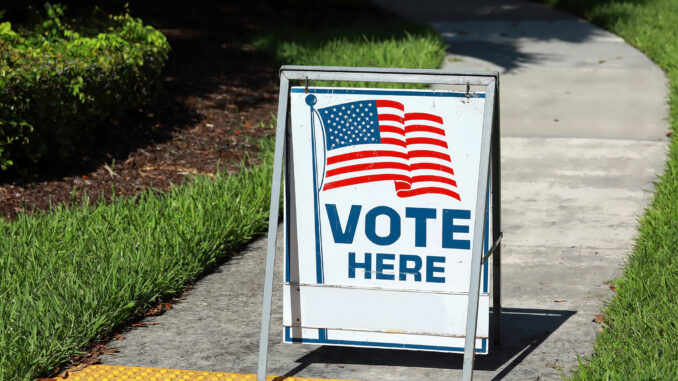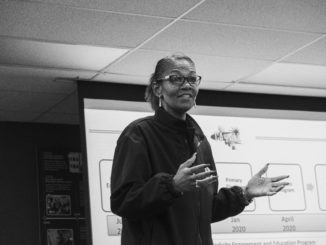
By Thea Marie Rood
Every American has the right to vote privately and independently. In fact, the Georgia Secretary of State—during an Independent Living Day event at the Capitol—unveiled three voting machines that were touted as being accessible to anyone with a physical or developmental disability.
The problem?
“None of them worked,” says Danny Housley, the assistive technology case manager at Shepherd Center in Atlanta. “We were told, ‘Oh, these are just demo machines—they’ll work by the election.’”
But the reality is they didn’t.
At the primary, for example, Housley, who is blind, waited more than four hours. At the general election, he waited “awhile,” and the January senate runoff was a “nightmare.”
“There were two different machines and one had a headset but didn’t have a controller and the other had the controller but not the headset. And apparently you couldn’t switch one out of the other,” he recalls. “We were told we’d have access to someone who could have immediate tech support, but a poll worker was on hold on two cellphones, and when she finally got a technician, he didn’t know the answer.”
When these glitches occur, Housley describes pressure from poll workers to read him the ballot and mark down his answers. “If you can and are comfortable,” says Housley, “make an awkward situation more awkward. (Tell poll workers), ‘You’re not reading it to me—I want to do it myself—and I’m going to sit right here until you get a machine that works.’”
In fact, his voting advice is simple: Know your rights. Have some advocacy phone numbers to call. And dig your feet in if you have to. “Do not be steamrolled,” he advises. “Do not let your rights be trampled on.”
Housley advocates for people with disabilities, but he also has a soft approach to the people at his polling place, who he admits know him by now and have a bit of an “Oh, God” reaction when he walks in the door. “On the flip side, the poll workers handling the machines need better training. And (they need training around) what does it mean to interact with someone with disabilities?…It’s always going to be a struggle—it’s just a question of how intense is the struggle going to be.”
Learn more at National Association of Councils on Developmental Disabilities’ voting website for people with disabilities, www.onevotenow.org.

